in memory of the painters Paul Klee
and Paul Terence Feeley
I
The painter’s eye follows relation out.
His work is not to paint the visible,
He says, it is to render visible.
Being a man, and not a god, he stands
Already in a world of sense, from which
He borrows, to begin with, mental things
Chiefly, the abstract elements of language:
The point, the line, the plane, the colors and
The geometric shapes. Of these he spins
Relation out, he weaves its fabric up
So that it speaks darkly, as music does
Singing the secret history of the mind.
And when in this the visible world appears,
As it does do, mountain, flower, cloud, and tree,
All haunted here and there with the human face,
It happens as by accident, although
The accident is of design. It is because
Language first rises from the speechless world
That the painterly intelligence
Can say correctly that he makes his world,
Not imitates the one before his eyes.
Hence the delightsome gardens, the dark shores,
The terrifying forests where nightfall
Enfolds a lost and tired traveler.
And hence the careless crowd deludes itself
By likening his hieroglyphic signs
And secret alphabets to the drawing of a child.
That likeness is significant the other side
Of what they see, for his simplicities
Are not the first ones, but the furthest ones,
Final refinements of his thought made visible.
He is the painter of the human mind
Finding and faithfully reflecting the mindfulness
That is in things, and not the things themselves.
For such a man, art is an act of faith:
Prayer the study of it, as Blake says,
And praise the practice; nor does he divide
Making from teaching, or from theory.
The three are one, and in his hours of art
There shines a happiness through darkest themes,
As though spirit and sense were not at odds.
II
The painter as an allegory of the mind
At genesis. He takes a burlap bag,
Tears it open and tacks it on a stretcher.
He paints it black because, as he has said,
Everything looks different on black.
Suppose the burlap bag to be the universe,
And black because its volume is the void
Before the stars were. At the painter’s hand
Volume becomes one-sidedly a surface,
And all his depths are on the face of it.
Against this flat abyss, this groundless ground
Of zero thickness stretched against the cold
Dark silence of the Absolutely Not,
Material worlds arise, the colored earths
And oil of plants that imitate the light.
They imitate the light that is in thought,
For the mind relates to thinking as the eye
Relates to light. Only because the world
Already is a language can the painter speak
According to his grammar of the ground.
It is archaic speech, that has not yet
Divided out its cadences in words;
It is a language for the oldest spells
About how some thoughts rose into the mind
While others, stranger still, sleep in the world.
So grows the garden green, the sun vermilion.
He sees the rose flame up and fade and fall
And be the same rose still, the radiant in red.
He paints his language, and his language is
The theory of what the painter thinks.
III
The painter’s eye attends to death and birth
together, seeing a single energy
Momently manifest in every form,
As in the tree the growing of the tree
Exploding from the seed not more nor less
Than from the void condensing down and in,
Summoning sun and rain. He views the tree,
The great tree standing in the garden, say,
As thrusting downward its vast spread and weight,
Growing its green height from the dark watered earth,
And as suspended weightless in the sky,
Haled forth and held up by the hair of its head.
He follows through the flowing of the forms
From the divisions of the trunk out to
The veinings of the leaf, and the leaf’s fall.
His pencil meditates the many in the one
After the method in the confluence of rivers,
The running of ravines on mountainsides,
And in the deltas of the nerves; he sees
How things must be continuous with themselves
As with whole worlds that they themselves are not,
In order that they may be so transformed.
He stands where the eternity of thought
Opens upon perspective time and space;
He watches mind become incarnate; then
He paints the tree.
IV
These thoughts have chiefly been about the painter Klee,
About how he in our hard time might stand to us
Especially whose lives concern themselves with learning
As patron of the practical intelligence of art,
And thence as model, modest and humorous in sufferings,
For all research that follows spirit where it goes.
That there should be much goodness in the world,
Much kindness and intelligence, candor and charm,
And that it all goes down in the dust after a while,
This is a subject for the steadiest meditations
Of the heart and mind, as for the tears
That clarify the eye toward charity.
So may it be to all of us, that at some times
In this bad time when faith in study seems to fail,
And when impatience in the street and still despair at home
Divide the mind to rule it, there shall be some comfort come
From the remembrance of so deep and clear a life as his
Whom I have thought of, for the wholeness of his mind,
As the painter dreaming in the scholar’s house,
His dream an emblem to us of the life of thought,
The same dream that then flared before intelligence
When light first went forth looking for the eye.
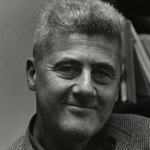

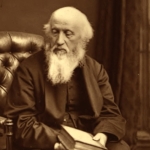
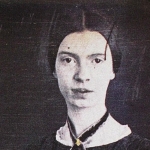









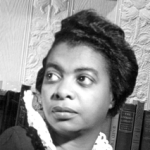



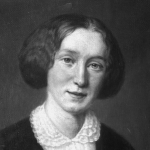



Comment form: